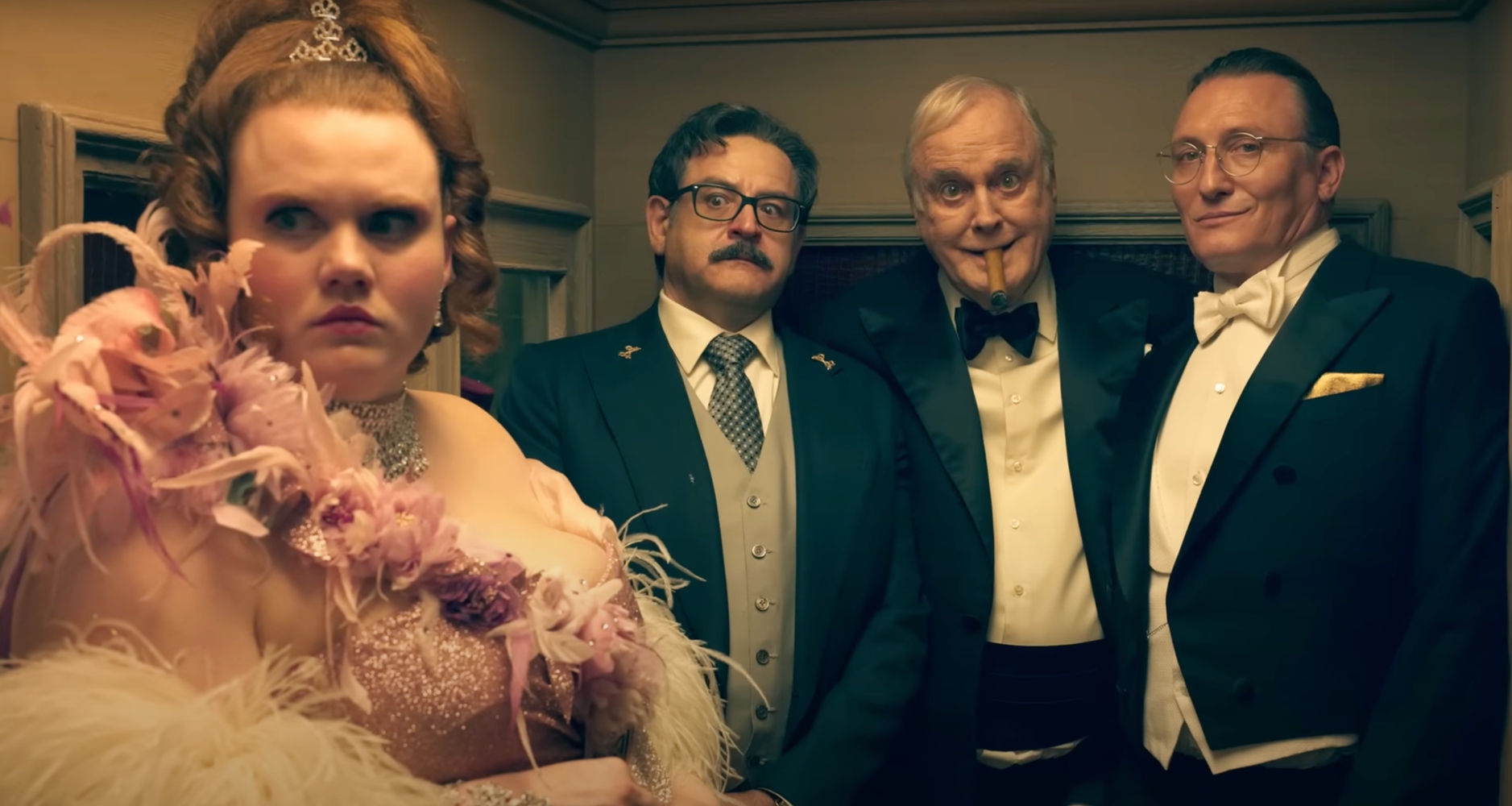In The Palace, guests of a luxury hotel prepare to celebrate the turn of the millennium. The caviar is tasted. The fireworks are readied. Soon (you guessed it) indulgence shifts to debauchery. The director, if you haven’t heard, is Roman Polanski, a filmmaker whose marketability in Europe seems to endure almost in spite of its continued non-existence in Britain and the United States. The Palace was made on a budget of €17,000,000, boasts an Alexandre Desplat score and a starry cast, and was shot in the Gstaad Palace of Switzerland, where a basic single room will set you back a grand a night. The Palace premiered this week at the Venice Film Festival, where Polanski’s last film, An Officer and A Spy, opened to cautiously positive reviews in 2019, ultimately winning him the Silver Lion for Best Director. At the time you could almost feel the critical consensus straining against its better judgment. There will be no such grappling this time around.
For better or worse, The Palace just isn’t good: a film that wears its bad taste like a mink coat while offering little in terms of fun, less still in terms of style. The director hasn’t forgotten which way to point a camera (it opens with some nice images of hands tying balloons) or lost his sense of humor, but this thing sits like a curdled cocktail: three-parts Östlund, one-part Grand Budapest Hotel (Desplat, take a bow). In that head-numbing mix are Dark‘s Oliver Masucci (surprisingly endearing as the hotel’s concierge), a typically swollen Mickey Rourke (playing a famous actor whose whole bit is having no reservation), the anti-woke champion John Cleese (awful as some version of J. Howard Marshall, with Bronwyn James as his Anna Nicole Smith) and Fanny Ardant (as a flirty woman with dog.) Joaquim de Almeida appears as a famed plastic surgeon––a significant role in a film where Botox could be credited as executive producer.
This geriatric soup of main players are joined by a gang of vodka-swilling Russians (weighed down by suitcases full of cash and soon to be joined by the Russian ambassador), a Czech family who claim to be related to Rourke’s celebrity, and an ex-porn star who breaks his nose out skiing. At least six languages are spoken––a shrewd move, perhaps, given the film has already sold in most major territories in Europe. There are jokes involving vomit, dicks, dog shit, a vibrator, a digitally rendered penguin, and a corpse––Weekend at Bernie’s-style. The performances and color palette are similarly repellent, and considering that this is a town where Polanski once lived, the film’s promised take-down of bloated elitism seems disingenuous. There is a hint near the beginning that the servers might tire of all the serving, but any allusions to class commentary prove just as perfunctory.
Somewhere in the middle Polanski drops a little wink to Chinatown but, of course, there are no allusions to what took place in Jack Nicholson’s house three years after that film’s release. It’s impossible not to mention Samantha Geimer when considering any of Polanski’s work. He did it. He pled guilty. He ran away. In 2003, as the story resurfaced during The Pianist‘s Oscar campaign, Geimer wrote an article for the LA Times reaffirming that the original plea had been sufficient closure for her and her family. As recently as April this year, in an interview with Emmanuelle Seigner (Polanski’s wife), Geimer was repeating that sentiment. He was 43 upon committing the crime and turned 90 this year. There have been recent signs that the temperature around him has started to cool, but will he live to see the day? Looks doubtful.
For all that, Polanski’s output over the last 20 years has been nothing if not consistent. If The Palace ends up being his last, he will have rounded off a tumultuous, often-brilliant career with an ugly dud. A generous person could find some duality in the film’s title: the famed alpine grounds of the Gstaad Palace are indeed as palatial as its name suggests. (The hotel has appeared in both Return of the Pink Panther and Christmas in Love, the latter a holiday romp starring Danny Devito and Christian De Sica––son of Vittorio, of all people.) But for a moment, Polanski seems to reach for something wider. As other guests fret over Y2K, the director takes a moment to show the Russians watching news from home: the contemporaneous broadcast in which Boris Yeltsin, then-president of Russia, announced his retirement and passed the torch to his successor, an impossibly sheepish-looking Vladimir Putin. Would Polanski be bold enough to suggest the decadent West (recently flush after the hopeful ’90s) was what really began to crumble that night? You wouldn’t put it past him.
The Palace premiered at the 2023 Venice Film Festival.

